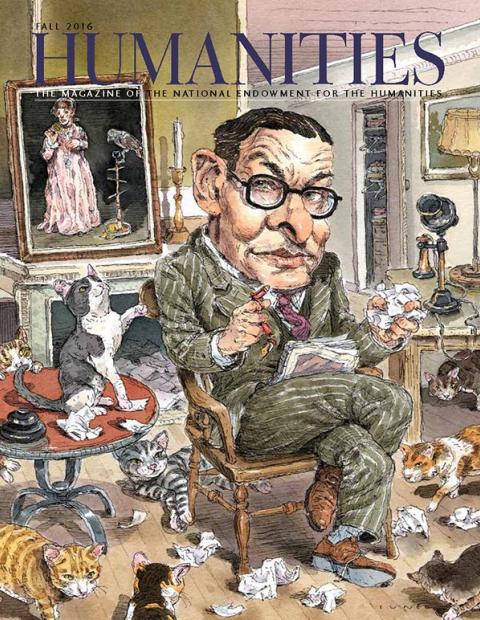The British vote last June to leave the European Union was perplexing for many. A majority of the electorate had disregarded the advice of political leaders worldwide and of many experts. Yet the preceding campaign and the final pronouncement were hardly improvised, as they connected with a debate that is deeper in time and, I believe, of great relevance to preserving the European Union.
Brexit was but the latest manifestation of Euroskepticism, a term coined in the mid 1980s to discuss the United Kingdom’s involvement in European integration, which at the time was encountering significant resistance from the Labour party. As the word circulated to the continent, its meaning expanded. As Cécile Leconte points out, Euroskepticism became “a ‘catch-all’ synonym for any form of opposition or reluctance toward the EU.” Now the term refers to an intricate phenomenon that plays an increasingly important role in the politics of the EU’s 28 member nations, whose citizens add up to around 500 million.
In the aftermath of World War II, the creators of the entity currently known as the European Union found the momentum to realize a long-standing utopian project that dated back at least to the Enlightenment: a new social and political arrangement that would bring lasting peace and welfare to the region. This idea was the basis for what Robert Schuman, one of the EU’s founders, announced in 1949 as “the fulfillment of the same recurrent dream that for ten centuries has revisited the peoples of Europe.” Schuman’s historic address laid out several key points that would shape the debate over integration in the following decades: the importance of a powerful vision, the problematic definition and limits of Europe, and the divide between those who perceive a common “European spirit” and the doubters who do not.
Gradually, and mostly as a top-down process, the dream became a reality and fostered a productive relationship among an increasing number of nations, all of whom experienced unprecedented stability and growth. But as the Union expanded, its allure waned. The EU lost prestige as it accepted poorer nations with weaker democratic traditions. Critics questioned the principles of integration (including economic prerequisites of membership and the moral authority of the EU) and the effects of its institutions’ policies on everything from migration to public debt and youth unemployment.
With the onset of the Great Recession in 2007, the success of the EU seemed more in doubt than ever. Prominent figures in traditionally pro-EU countries were beginning to say that Schuman’s dream had become a nightmare, especially in “peripheral” Europe (a telling term). Old anxieties came to the fore in protests about German supremacy and the rigid economic policies that severely impacted the citizens of the southern nations. In Greece, Portugal, Spain, and Italy, former Europeanist enthusiasm turned into disillusionment, skepticism, or even anger.
The “dream-turned-nightmare” metaphor is used, for instance, by Italian economist and essayist Luigi Zingales and by Spanish author and filmmaker Vicente Molina Foix. While they work from different ends of the political spectrum, both lament the havoc the EU caused in their respective countries. And they are just two of the numerous public intellectuals and artists who have contributed to the discourse of Euroskepticism, now an array of critical attitudes and arguments that have developed in reaction to pro-Europeanization initiatives.
Euroskepticism encompasses more than mere resistance to the actions (and omissions) of “the gentle monster of Brussels,” as the celebrated German author Hans Magnus Enzensberger calls what he sees as a bureaucracy-prone EU. It is a comprehensive phenomenon. Since the 1980s, the views of Euroskeptics have ranged from ultra-nationalists’ fierce hostility toward the very existence of the EU (which they see as imperial interference with their countries’ sovereignty) to constructive criticism by others whose goal is not to dismantle the Union but to reform it.
These reformist contributions, ultimately aimed at the bureaucratic elite of the EU, though usually channeled through national media or institutions, often demand more open and inclusive procedures of governance. They also plead for a change in economic priorities, and comment on inconsistencies between the EU’s impeccable human rights rhetoric and the policies it actually applies, especially in the areas of immigration and border management. In the current moment, these voices are no longer heard exclusively on the margins of the debate. They are entertained in the mainstream media and invoked by leaders across the political spectrum.
As the Brexit referendum made clear, Euroskepticism involves more than rational arguments. To a great extent, it is shaped by emotions. The affective dimension of the European integration project has usually gone unnoticed—hence, the surprise of many who thought the British choice to remain in the EU was a “no-brainer.” Addressing this reality requires paying attention to undertakings different from those of traditional political actors. Nowadays, artists and intellectuals throughout Europe are putting forth a variety of viewpoints and proposals that engage reason as well as emotion. They do not speak in the jargon that usually dominates EU discussions. Spanish artist Santiago Sierra and the Paris-based collective Claire Fontaine are two examples of creators who have produced gripping works that move viewers to rethink the power relations within the organization and their effects on ordinary citizens.
Euroskeptic authors contribute to a most necessary critique of the European project; a utopian horizon that somehow became a quotidian reality that European citizens need to deal with. These contributions may prove fundamental for the future of the Union as the transnational organization struggles to connect with its people, helping citizens visualize how the decisions of the Union affect their daily lives, and moving them to further participation in political processes, such as the elections to the European Parliament, which are often perceived as irrelevant. The plurality of perspectives that these voices bring is one of the few hopes left to imagine ways to renew the promise of a union of the European nations. In short, only a healthy dose of creative Euroskepticism can save the EU.

